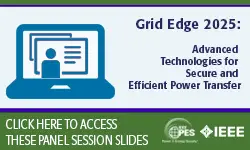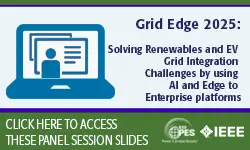Flexible Loads Decarbonization: Behind-the-meter Electrical Capacity Constraints and Carbon-Aware Control Opportunities
Wyatt Merrill, Jing Wang, Bruce Nordman, McGee Young, Line Roald, Tom Hines
-
Members: FreePES
IEEE Members: $25.00
Non-members: $40.00Pages/Slides: 24
Panel
12 Sep 2024
Decarbonization of buildings and other flexible loads through electrification will present new challenges to the nation's infrastructure and operational status quo. Existing building loads currently served by fossil fuels will require electrification, including end uses not previously associated with building energy infrastructure such as electric vehicle charging. In many cases, the existing infrastructure cannot accommodate the new loads according to current regulations and upgrading that infrastructure may not always be feasible— especially for low-income families. State-of-the-art grid-responsive control strategies have been shown to provide significant savings for the customer, valuable grid services to utilities/grid operators, and are likely the lowest cost source of grid peak load and carbon pollution reductions. Although emissions reductions are typically a secondary objective in these strategies, they can be reformulated to directly optimize for carbon emissions reductions. Not only will carbon-aware control allow the full emissions reduction potential to be realized, it could also reduce the pressure on existing infrastructure. In this session, panelists from the U.S. Department of Energy, national laboratories, industry, and academia will discuss the current efforts on addressing the infrastructure constraint challenges, support of affordable home electrification, and advanced controls strategies for controlling flexible loads.
Chairs:
Tim Yoder, Xin Jin
Primary Committee:
Smart Buildings, Loads & Customer Systems



